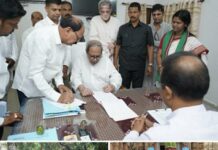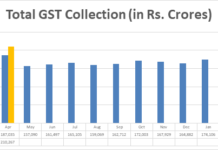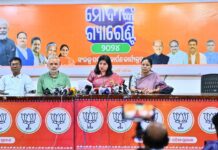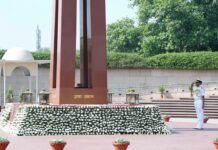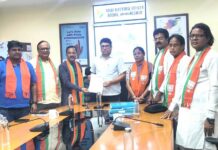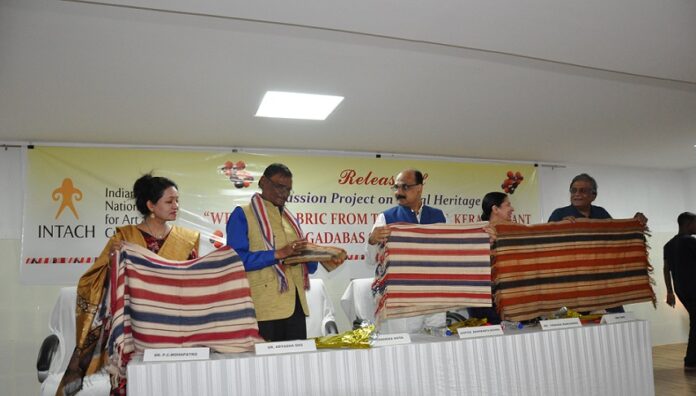
By Our Correspondent
BHUBANESWAR: On the occasion of the World Heritage Day, the Indian National Trust for Art and Cultural Heritage (INTACH), unveiled it Passion Project on the Kerang Fabric of the Gadabas of Koraput. In an event held at Bhubaneswar, Gadaba tribeswomen, attired in Kerang sarees, showcased the revival of the age old heritage.
The use of hand woven clothes made out of Kerang fiber by the Gadaba and Bonda tribes has a long history and has occupied an important place in their culture and mythology. The women of these two tribes wear clothes made out of the bark of the Kerang plant which grows wild. Tribal men and women collect the bark of the tree and after soaking it in waters of the nearby hill streams, sun dry it and extract the fiber out of the bark.
They use different vegetable colours before weaving it in a set pattern that has been followed for centuries. While the Gadaba women wear full length cloth or saree with colorful stripes which covers the entire body, the Bonda women wear a small piece of cloth called Ringa which wraps the lower part of the body in a certain customary manner. These colorful fabric lasts for several generations and has a usable life of a century. The weaving of the Kerang fabric is a rite of passage for every Gadaba girl, she wears it during her marriage and is also draped in it when she dies.
This ancient tradition of weaving the Kerang fabric was on the wane. During Intach’s study in 2020, it was found that there were hardly any villages which had existing looms and none of the Gadabas were engaged in making the Kerang fabric. Intach undertook a Passion project to revive the dying tradition. Four villages were selected in Lamptaput Block and looms and assistance were provided to the villagers.
The Project was initiated by the State Convener Shri A.B.Tripathy (IPS) Retd and a proposal sent to Intach’s Head office at Delhi. After approval of the project, it was headed by Sanjib Ch Hota IAS (Retd) with the other members being Dr P.C. Mahapatra, Convener Koraput Chapter, Anil Dhir and Dr Rajendra Padhee. The team interacted with the Gadaba tribesmen in different villages through workshops and open discussions.
The report was released by Justice Sashikanta Mishra, Judge of the High Court of Odisha in the presence of Ms. Vandana Manchanda, Head of Intach’s Heritage Crafts and Community Division. Sanjib Hota, the Project Leader said that the District Administration and the Govt. of Odisha have agreed to provide proper and adequate hand holding to ensure that this ancient tradition of the Gadabas does not vanish.


